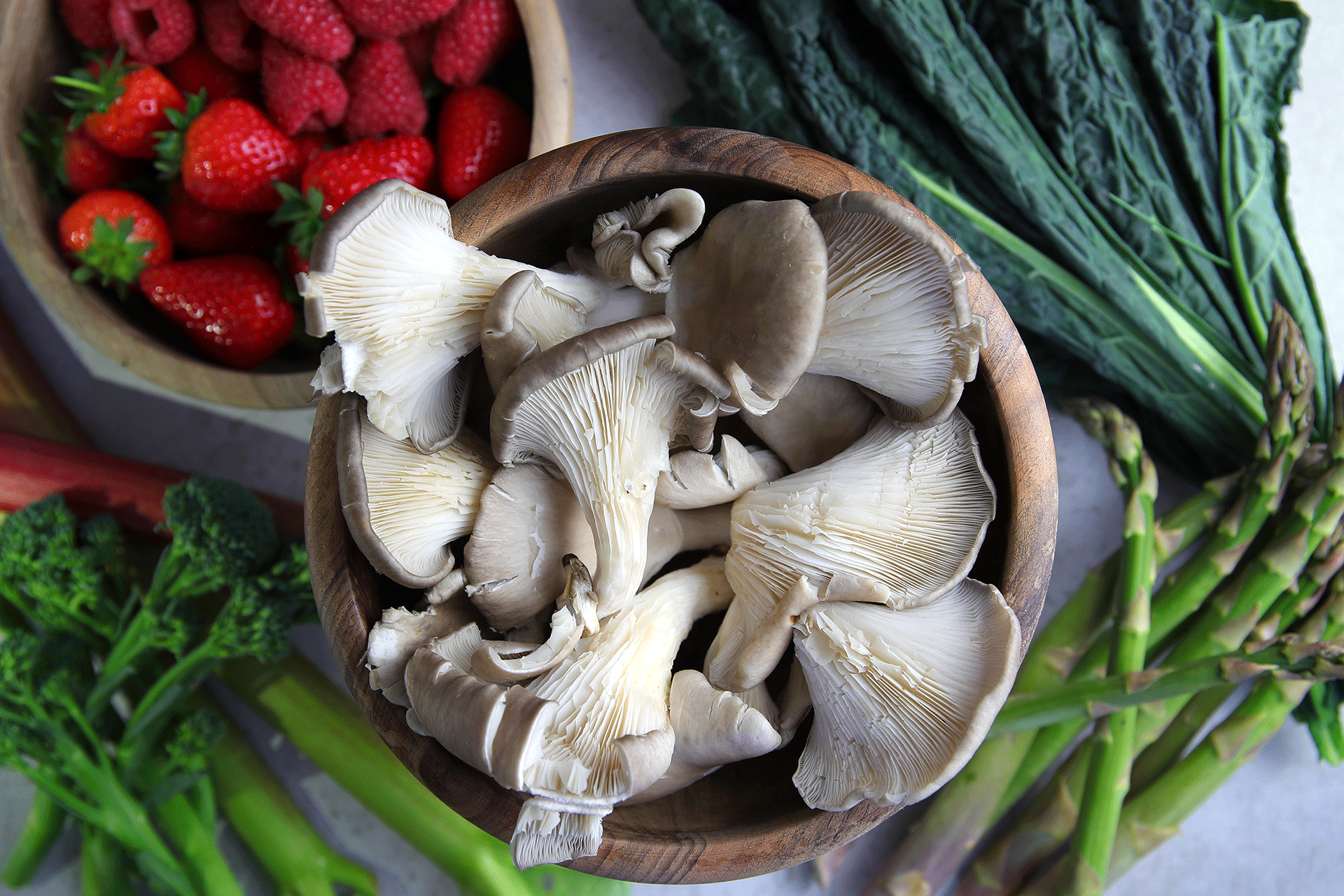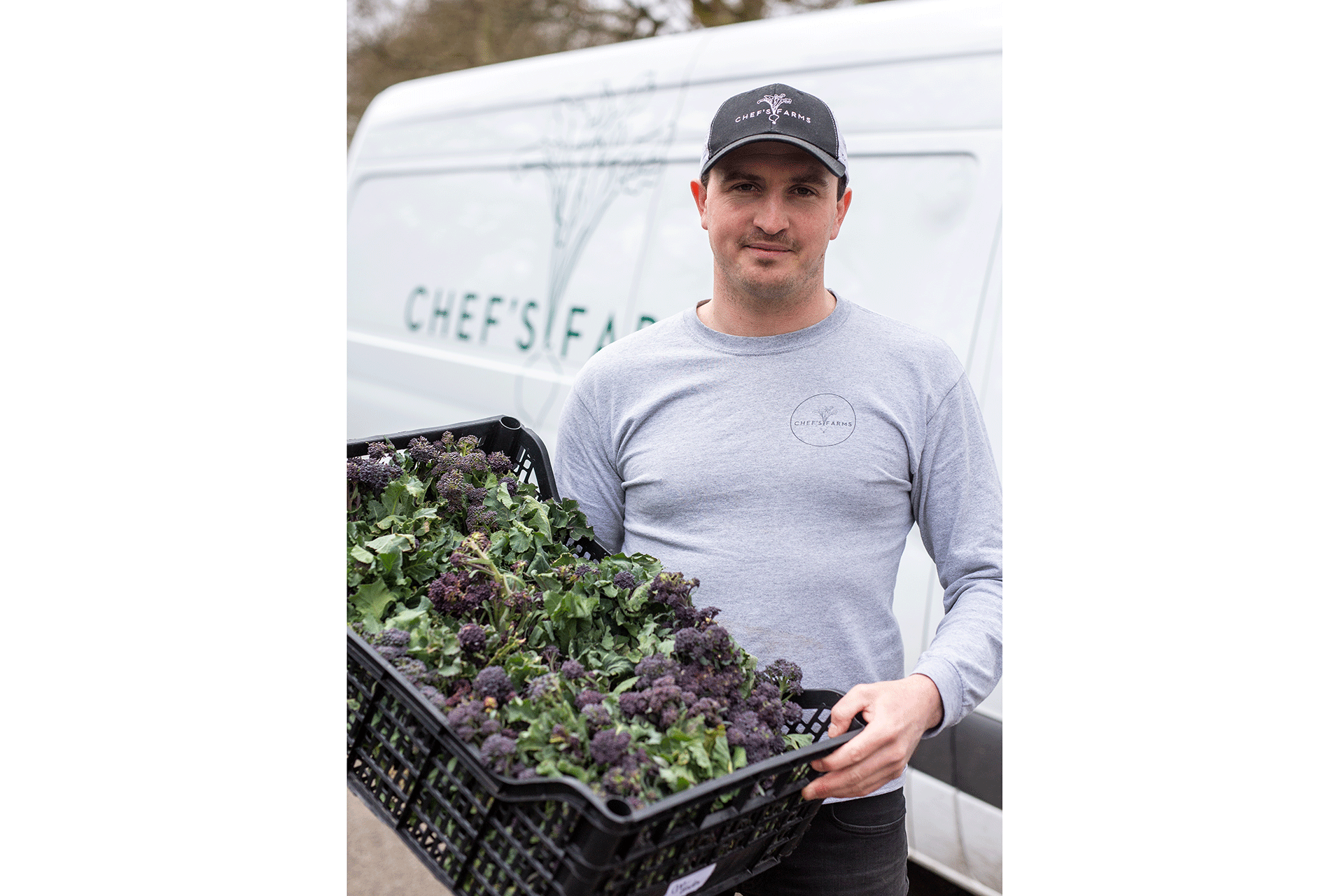
- HOME
- FOOD & DRINK
Green Heroes: Tom Denman, Managing Director, Chef’s Farms
"We have gone back to basics which is certainly best for the environment"
By | 3 years ago
Chef’s Farms was launched with the aim of establishing a market place for people who care about good quality local food that is ethically and sustainably sourced.
When was your green lightbulb moment?
I have always been passionate about food and I worked as a chef before founding Chef’s Farms. My moment of enlightenment was in a glamorous Swiss resort as I was attempting to make unseasonal veg, transported half-way around the world taste good. Upon my return to the UK, I was relying on suppliers who just weren’t good, the produce wasn’t fresh, seasonal or local and I knew about farming…
What green business practices are you most proud of?
We have absolutely no waste. All our carboard is recycled, all our plastic is reused and all our surplus food goes to a local foodbank (and the pigs benefit a little bit too).
What makes you feel positive about a sustainable future?
Customers are now interested in the provenance of their food. Lockdown has had a positive effect in educating about the culinary global supply chain and we’ve seen a considerable increase in people growing produce at home and community growing schemes. I just hope these new trends last.
And what are the facts that make you fearful?
That people believe eating avocados is part of a healthy and sustainable lifestyle, and while we’re on that subject did you know that, in our recent history, prawns and shrimps caught in Scotland were shipped to Thailand to be deshelled? I genuinely worry about the impact of eating produce out of season and it stems from a lack of education in food.
Who is your own green hero?
I think this one has to go to HRH The Prince of Wales. He was so far ahead of the game when he introduced Duchy Originals in 1990. I have associated him with concern over climate change for my entire life, he is doing valuable work with the Campaign for Wool and he’s spotlighting the need for ‘Harmony in Food and Farming’.
Your favourite product– and tell us why we can feel good about buying it?
I love our mixed heritage beetroot bunches. The taste is unknown. Each colour has its own flavour. They’re super healthy, versatile and unexplored. You can cook them at least 15 ways and eat them raw in about five ways. It’s a low value, low importance product (we all dreaded that tasteless, preboiled, mud flavoured veg at school) – but the heritage crop has transformed beetroot, now’s the time to try it. Roasted rainbow beetroot with plenty of garlic is so good!
Can producing anything new really be called sustainable?
Yes, through careful cyclical farming, new produce is sustainable so long as nothing old is sacrificed. Using our environmentally friendly methods, the soil structure is improved and enriched. Kale, for example, is wonderous for us and for the soil. It’s a winter crop which maintains soil structure, improves soil fertility, solves run-off problems and is a dream for re-generative farming. We utilise raw materials that are freely available, water, light, oxygen and nitrogen.
Where do you source your materials?
We are fortunate in having very few raw materials. We source our seeds from organic stock and our organic compost is made locally, minimising our carbon footprint. We have gone back to basics which is certainly best for the environment. If we do need to source anything, we always look locally first.
Name three other of your favourite brands who are doing the right thing and why you like them?
I am totally anti waste… One third of the world’s food is wasted, 70 per cent of which is in the home, and meanwhile, nine per cent of the world’s population is starving.
There have been some super and farsighted sustainability pioneers in the food industry, from charities tackling waste and poverty, such as FareShare Sussex, who redistribute surplace food from businesses and turn it into meals and food parcels for those who would otherwise go hungry.
Too Good To Go is an app developed to reduce waste, with whom Chef’s Farms works. They link a mouth with any produce that we harvest an excess of. We create mixed boxes which are snapped up locally within minutes on the app and it completely eliminates any waste.
Finally, I’m an advocate of Herne Clothing. They endeavour to be at one with nature and have successfully created a range of clothing suitable for an outdoor lifestyle from their sustainably managed flock of merino sheep. They have certainly achieved their British #wooltowardrobe ambition, and are not only setting an example to the fashion industry, but also in good farming practice, demonstrating vertical integration. They are completely traceable and great quality.
Should we be green shaming the brands/companies who are doing nothing to change their ways?
We need to educate consumers not to use companies who aren’t progressing ecologically. People’s greatest power is their buying power; they should have the knowledge to ‘buy right’. There should also be more rewards or accreditation for producers who are carbon sequestering.
What are the biggest challenges in running a sustainable business?
Team management and training is vital to ensure that everyone on the team has the same desire and drive to be sustainable. We are also entering a new era – the traditional quick, easy fix is no longer the best option. The new solution comes with an associated cost and requires the team to pull together to think outside the box.
What advice can you give to other businesses who are wanting to do better?
Research, research, research. Don’t be afraid to have a go and don’t settle for the norm.
Will you sign up to going carbon neutral (or even negative) by 2050?
We are aiming to be neutral by 2030 and believe that the ambition should be for carbon neutrality to be in conjunction with habitat creation. We are sequestering huge amounts of carbon while protecting and creating habitat, planting trees and cultivating as little as possible. We are also in the process of helping corporates to offset their carbon too.
Three things we should all, as individuals, be doing to help in the climate change fight?
We live in a fantastic, stable part of the world. There are many positives that we can take from lockdown: slow down, appreciate our surroundings and worry less about our materialistic lifestyles. For that to happen we need to eat seasonal British food, buy quality clothing (not fast fashion) and fix it before you bin it… and enjoy English sparkling wine!
For more information on Chef’s Farms sustainable activities, visit their ‘farm blog’ and follow them on Instagram.
MORE GREEN HEROES:
Hugo Empsom of Generous Ape / Zak Johnson of Naeco




